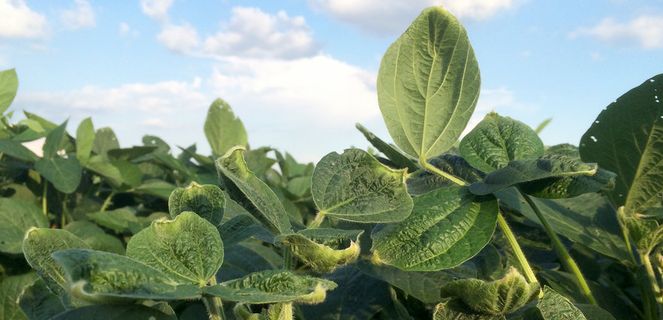Arkansas Plant Board tentatively approves restricted use of dicamba for the upcoming growing season
by December 9, 2018 9:54 am 576 views

The Arkansas Agriculture Department’s State Plant Board has approved restrictive use of the herbicide dicamba for the upcoming growing season, and now it will be under Gov. Asa Hutchinson’s review. The Plant Board moved forward with rulemaking by approving a draft regulation that would restrict applications of dicamba from May 21 to October 31. It applies to “over-the-top” applications on dicamba-resistant cotton and soybean during the 2019 growing season.
The proposed rule includes a one-mile buffer zone around research stations, organic crops, specialty crops, non-tolerant dicamba crops and other sensitive crops for applications taking place from April 16 to May 20. Also approved by the Plant Board was a restriction on mixing glyphosate with dicamba applications from April 16 to May 20.
The proposed rule now goes to Hutchinson for review. If approved by the governor, a 30-day public comment period will take place prior to the Plant Board’s final vote to approve the revised regulation.
ASPB made the decision to ban dicamba after it received about 1,000 damage complaints in May, 2017, primarily in Northeast Arkansas, potentially caused from dicamba drift. The decision was highly controversial, but the board decided the risks were too significant.
Dicamba is a weed control herbicide, but it has been suspected of causing damage to other crops. ASPB, which investigates and reviews complaints, enacted higher fines on improper dicamba applications meant to serve as a significant deterrent to potential violators.
Dicamba has been banned in several states. Dicamba has been used as an herbicide for more than 50 years to manage 200 broadleaf weeds. It is a Weed Science Society of America Group 4 synthetic auxin – a plant hormone that causes plants to exhibit uncontrolled growth, according to the University of Arkansas. It is more volatile in warmer climates.
Scientists theorized dicamba was drifting into adjacent crop fields, gardens, and other places. Misapplications, weather conditions, or some other unknown factors may have caused the alleged drift. Tests proved the new formulations were less volatile than older ones, but there was still volatility, and it could last up to 36 hours after it was sprayed. Dicamba can attach to dust particles, meaning it can travel much further from target sites than previously thought.
